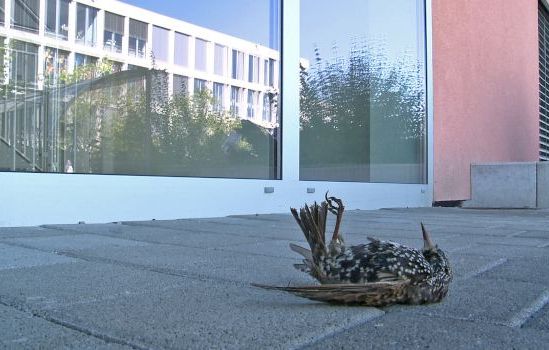A challenge to raise awareness among as many people as possible about bird collisions with glass surfaces. “Glass surfaces represent a double danger for birds,” explains LPO Aquitaine: the transparent property of glass makes it imperceptible, and the reflections mask the presence of the wall that the bird ends up hitting during its flight. Thousands of them die every year following a collision with our windows. »
The LPO Aquitaine Care Center, located in Audenge (Gironde), received 111 bird victims of collisions in 2023. However, “easy-to-implement actions help limit the risk of collisions by making glass surfaces perceptible to birds” assures the organization.
Anti-collision stickers, designs, light curtains…
For example, it is advisable not to install plants or feeders near risky surfaces so as not to attract birds. Then, to cover the transparency of the glass, you can install anti-collision stickers, light curtains, blinds, shutters, drawings with paint or liquid chalk, etc.
“It is preferable to favor exterior marking of a light color, more visible to birds” specifies the LPO. Note that vertical lines are more effective than horizontal lines. Installing tinted or textured windows can also be a solution to limit reflections and make the glass “visible” to birds.
If the bird does not fly away, “it must be taken care of”
This is why the LPO is launching challenges at the start of spring: taking inventory of windows at risk by looking to see if the environment is reflected there, displaying an awareness poster in the workplace, installing systems anti-collision on a window at home… To participate, simply register on the platform Broadcast and to take up the challenge proposed by the LPO.
Finally, if you discover a bird stunned after hitting a window, if it is inert after the shock, “the best is to wait an hour or two until it leaves on its own” . If the bird does not fly away, “it must be quickly taken care of by a suitable structure”.
You must contact a healthcare center as quickly as possible to find out the treatment procedure. In Gironde, the LPO Aquitaine Care Center can be reached on 06 28 01 39 48. The map of the Network of Wildlife Care Centers lists useful contacts depending on the geographic area.

